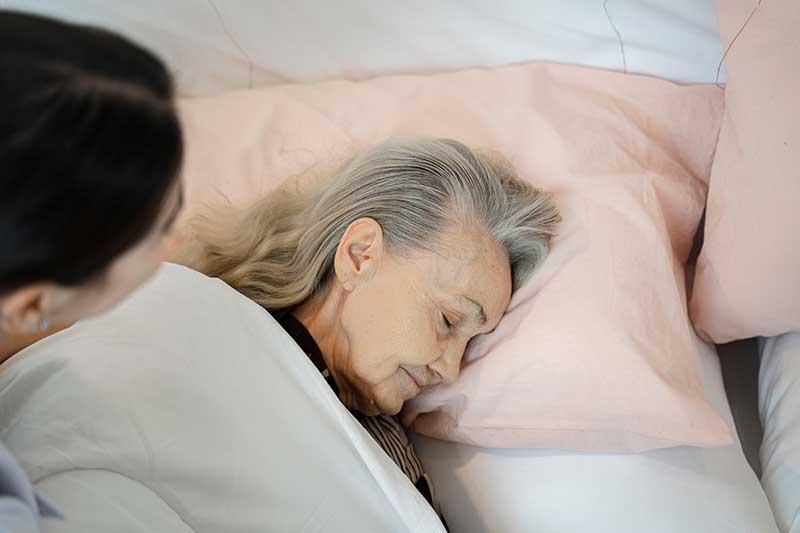Sleep Disorders in Seniors Insights and Management
 As we become older, our sleep habits alter, which can lead to a range of sleep disorders. Many seniors are experiencing sleep difficulties that they never had in their younger years. Insomnia, sleep apnea, and restless legs syndrome are a few examples. Each of these disorders has a substantial impact on seniors’ quality of life, impacting everything from mental sharpness to physical health. In this article, we’ll look at several common sleep disorders, their implications for seniors, and potential treatment strategies.
As we become older, our sleep habits alter, which can lead to a range of sleep disorders. Many seniors are experiencing sleep difficulties that they never had in their younger years. Insomnia, sleep apnea, and restless legs syndrome are a few examples. Each of these disorders has a substantial impact on seniors’ quality of life, impacting everything from mental sharpness to physical health. In this article, we’ll look at several common sleep disorders, their implications for seniors, and potential treatment strategies.
Insomnia
Insomnia is probably the most frequent sleep issue among the elderly. It refers to difficulties falling or staying asleep. Seniors with insomnia may wake up frequently during the night or too early and be unable to get back asleep. Stress, underlying medical or psychological disorders, and changes in the sleep environment can all contribute to the onset of this illness.
Management Tips:
- Establish a consistent sleep schedule by going to bed and getting up at the same time every day.
- Make a sleep routine that encourages relaxation, such as reading or listening to soothing music.
- Limit screen time before bedtime, as blue light can disturb natural sleep cycles.
Sleep apnea
Sleep apnea is a dangerous condition marked by breathing pauses while asleep. These pauses might extend from a few seconds to minutes and occur 30 or more times every hour. Obstructive sleep apnea, the most common type, is more prevalent in seniors, particularly those who are overweight. Sleep apnea can cause daytime weariness, cardiovascular issues, and poor cognitive function.
Management Tips:
- Use a continuous positive airway pressure (CPAP) equipment during night to keep the airways open.
- Maintain a healthy weight with nutrition and activity.
- Avoid alcohol and sleeping drugs, as they might relax the throat muscles and aggravate the condition.
Restless leg syndrome (RLS)
Restless legs syndrome is a neurological condition that produces an uncontrollable need to move the legs. This sensation usually comes in the evening or at night, when you are sitting or lying down. Moving relieves the unpleasant sensation temporarily. RLS can severely interrupt sleep, causing daytime tiredness and affecting general health.
Management Tips:
- Maintain a steady sleep routine and make your sleeping environment comfy.
- Moderate exercise can help lessen RLS symptoms.
- Consult a doctor about drugs that can help manage symptoms, but be aware of any potential side effects that may interfere with sleep.
How These Disorders Impact Seniors
Sleep disturbances can have a significant influence on a senior’s health and quality of life. Poor sleep can reduce immunological function, impair memory, and increase the chance of falling. It can also worsen chronic illnesses like diabetes, heart disease, and obesity.
Recognizing and treating sleep disturbances in the elderly is critical for their physical, mental, and emotional well-being. Seniors who are suffering sleep problems should visit with healthcare specialists who can give a comprehensive solution tailored to their unique needs. By properly addressing sleep issues, we may assist ensure that our senior years are not only longer, but also more fulfilling and healthier.



